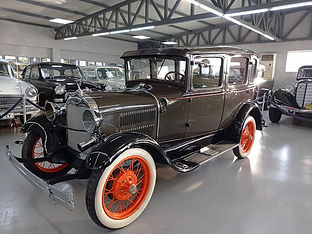
TBILISI
TBILISI
Tbilisi, Georgia's capital and largest city is located on the banks of the Kura River and has a population of approximately 1.2 million people. The cityscape of Tbilisi is a perfect mix of traditional Georgian customs and modern developments. Tbilisi's ancient neighborhoods have attractive cobblestone streets ....
ATTRACTIONS IN TBILISI
HOTELS IN TBILISI
ALL ABOUT TBILISI
General information about Tbilisi
Tbilisi, Georgia's capital and largest city is located on the banks of the Kura River and has a population of approximately 1.2 million people. The cityscape of Tbilisi is a perfect mix of traditional Georgian customs and modern developments. Tbilisi's ancient neighborhoods have attractive cobblestone streets and medieval architecture, which are combined with modern buildings that reflect the city's dynamic expansion and development. The shopping environment in Tbilisi is a lovely mix of old and new. Traditional bazaars, where vendors sell their items in tiny alleyways, coexist with modern retail malls in the city. The religious legacy of the city is also an important aspect of its identity. Tbilisi has many old churches, a synagogue, a mosque, and other religious sites, indicating the city's long history as a spiritual hub.
The Ten Commandments of Tbilisi
In order to get the most out of your visit to Tbilisi, choosing the most fitting locations to your preferences is a great way to plan your trip effectively. Georgia is a very traditional country. Therefore, most of the landmarks and attractions will have some sort of traditional elements for instance: The Mother of Georgia, Narikala Fortress, The Great Synagogue of Tbilisi, The Chronicle of Georgia, The Bridge of Peace, The Georgian National Museum, Mtatsminda Park, The National Botanical Garden of Georgia, The Holy Trinity Cathedral of Tbilisi, Metekhi Church, and more.
Where to eat
Tbilisi offers a diverse range of restaurants, pubs, and cafés where you may enjoy local or international cuisine and experience Georgian wine, Chacha, beer, and other beverages. Barbarestan, Otsi, Shavi Lomi, Keto and Kote, and Funicular Cafe are among the most popular and well-reviewed restaurants and cafés in Tbilisi right now.
These restaurants mostly serve traditional Georgian food, and Barbarestan is notably appealing and eye-catching to customers due to its interior's vintage-inspired decor and ancient Georgian monuments from the past hanging on the walls.
Where is recommended to go shopping in Tbilisi
Tbilisi offers a diverse shopping experience with a mix of traditional markets, modern shopping malls, and unique boutiques such as Dry Bridge Market (AKA Flea Market), Shardeni Street, Deserter's Bazaar, and Galleria Mall.
What are the ways to get there
Tbilisi is easily accessible by road and air for its visitors. Tbilisi International Airport is the country's primary airport since flights are the most convenient choice for international travelers. Direct flights from Ben Gurion Airport are frequently available by Georgian and Israeli Airlines, with an average duration of 2.5 hours. As well, the Georgian Railway is connecting Tbilisi to other major cities such as Batumi, Borjomi, and Kutaisi, making it possible to travel comfortably in a matter of hours. Other public transportation such as Buss, Taxies, and Marshrutkas are available most of the day at affordable prices. In some cases, low costs might be at the expense of comfort or even safety.
What is the weather like during the year
Tbilisi has four seasons throughout the year, with January being the coldest month and July being the warmest. It is best to visit between May and October, although rainfall might fall unexpectedly.
The history of the city
Tbilisi's history stretches back to the 5th century AD when King Vakhtang I Gorgasali of Iberia (ancient Georgia) built the city. According to folklore, the city was founded after the monarch discovered heated sulfur springs while hunting, as "Tbili" means "warm" in Georgian. Tbilisi's location at the crossroads of Europe and Asia made it an important trading and commercial center along the Silk Road. Tbilisi fell under Russian Imperial sovereignty in the early nineteenth century, and following its collapse, the country was independent for a few years, till the Soviet Union's red army conquered Georgia.
The city witnessed substantial industrial and urban expansion during the Soviet era and regained its independence with the fall of the Soviet Union in 1991. Tbilisi has seen tremendous urban development in recent years, with the restoration of old structures, the installation of modern infrastructure, and the expansion of cultural and tourist attractions.
Who is the Tbilisi suitable for
Tbilisi is a dynamic and vibrant city that appeals to a broad spectrum of visitors. Its rich history, cultural legacy, and architectural landmarks make it a perfect destination for culture and history lovers, looking to see historical sites, museums, and traditional Georgian culture. As well, Tbilisi is a foodie's heaven. Its eclectic cuisine, which includes traditional Georgian specialties as well as international flavors, provides a delectable culinary experience. Tbilisi's thriving nightlife provides entertainment with its active bars, clubs, and music venues. The city's unique mix of architecture, ranging from medieval to modern structures, provides enough opportunity for artists and photographers. Also, Tbilisi is ideal for families due to its family-friendly activities, masterclasses, amusement parks, attractions, and cultural experiences











